



March 2020 marked the third year in a row that Sania Maskatiya showcased her designs at New York Fashion Week (NYFW). Days after her show, the pandemic struck the luxury industry worldwide and the lockdown in her hometown Karachi put a spanner in her operations as well.
But the woman considered Pakistan’s most successful fashion export wasn’t one to give up so easily. “How does a luxury fashion brand stay relevant in such times when no one can leave home or dress up for an occasion?” the 37-year-old creative head of her eponymous label brainstormed with her team of 15 designers.
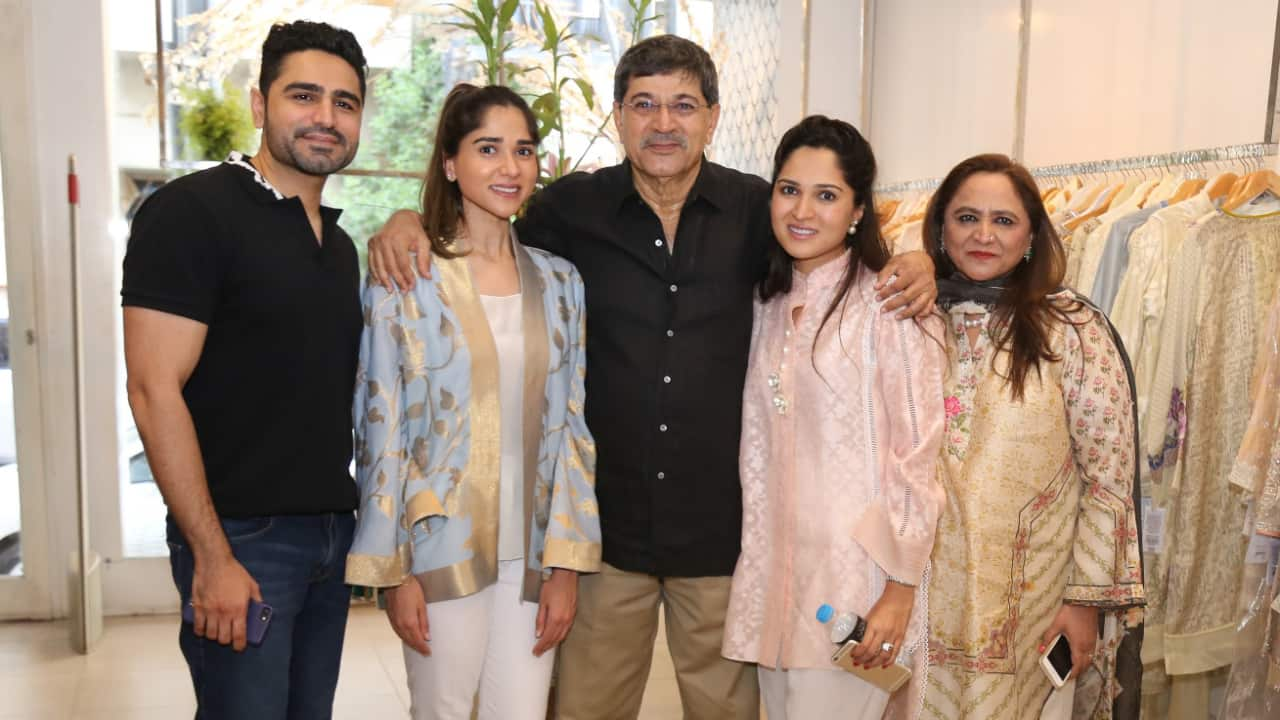 Umair Tabani, Sara Tabani, Yacoob Tabani, Sania Maskatiya and Yasmeen Tabani pose for an image.
Umair Tabani, Sara Tabani, Yacoob Tabani, Sania Maskatiya and Yasmeen Tabani pose for an image.
After all, they had almost 700 workers and artisans across Pakistan whom they needed to keep gainfully employed; they couldn’t just let production come to a halt.
She decided to look within. “What would I feel like wearing during a lockdown, stuck at home in the summer, conducting all meetings online?” The answer led to a new limited-edition casual-prêt line of desi lounge-wear, loose lawn or cotton kurtas, and airy bottoms that one could live in while also looking sharp enough for an Instagram selfie or a Zoom call.
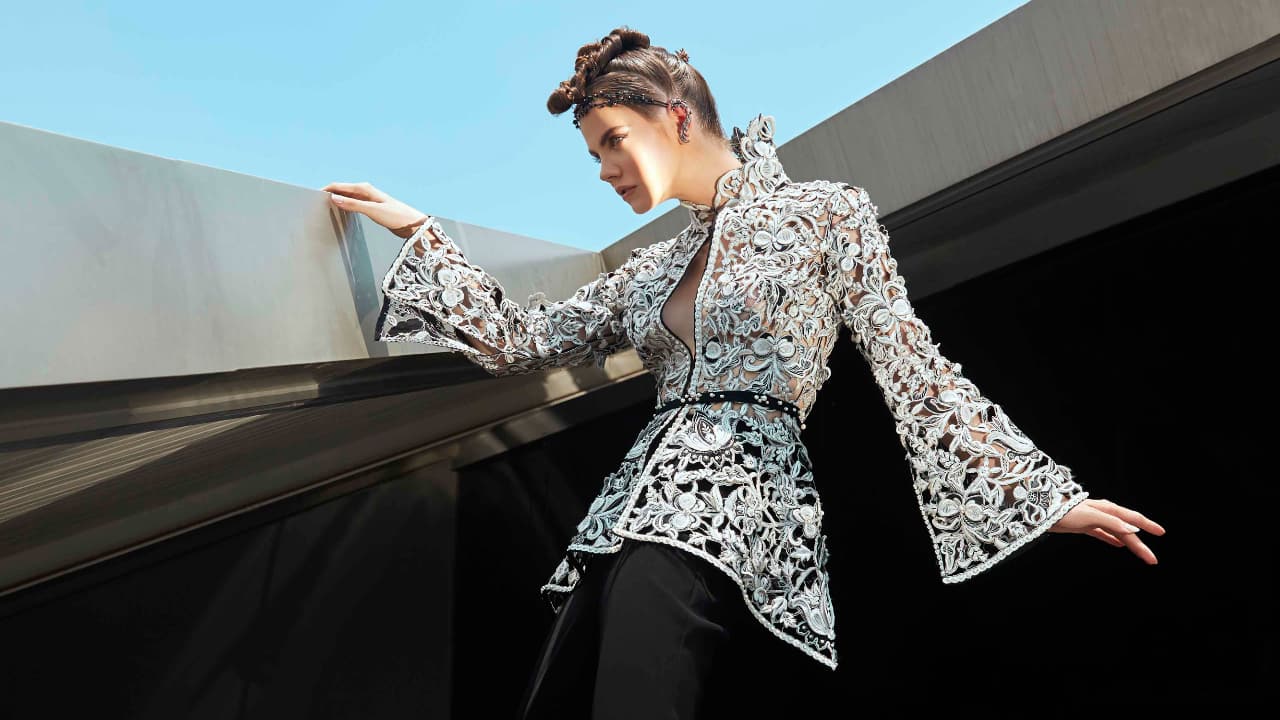 A model posing for Sania Maskatiya's outfit.
A model posing for Sania Maskatiya's outfit.
Known for her focus on fabric and craftsmanship, Sania’s runway shows and new collections are much anticipated in Pakistan and India, not to mention with the diaspora in Europe, UK and USA.
A fashion graduate of the Indus Valley School of Art and Architecture in Karachi, Sania launched her label in 2010 along with her brother Umair Tabani, who is the brand’s CEO.
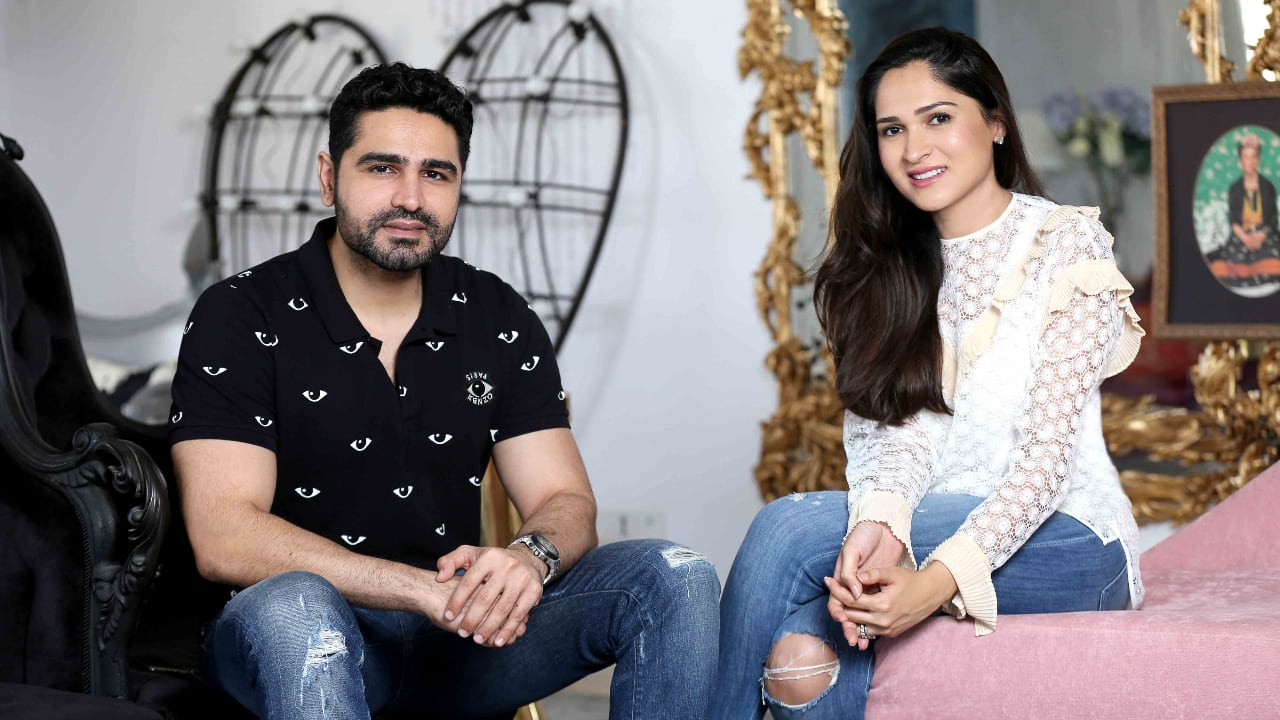 Umair Tabani and Sania Maskatiya pose for an image.
Umair Tabani and Sania Maskatiya pose for an image.
The design brand has held fashion shows across the world, from Mumbai and New York to Dubai and Beirut. With various fashion awards under her belt, Sania’s pieces are often spotted on South Asia’s stars and celebrities including Bollywood actors. Available worldwide through her e-commerce store, Sania also retails through stores in Pakistan, Dubai, Europe, USA, Singapore and India.
And yet, despite the fame and the attention she receives, Sania is remarkably friendly and chatty over a video call from Karachi. She tells me about her little daughters, Amani, 10 and Noor, eight. She lays back on her couch and shares how she is always “hustling” because there’s always something new to work towards – whether it’s Eid or pandemic prêt-wear.
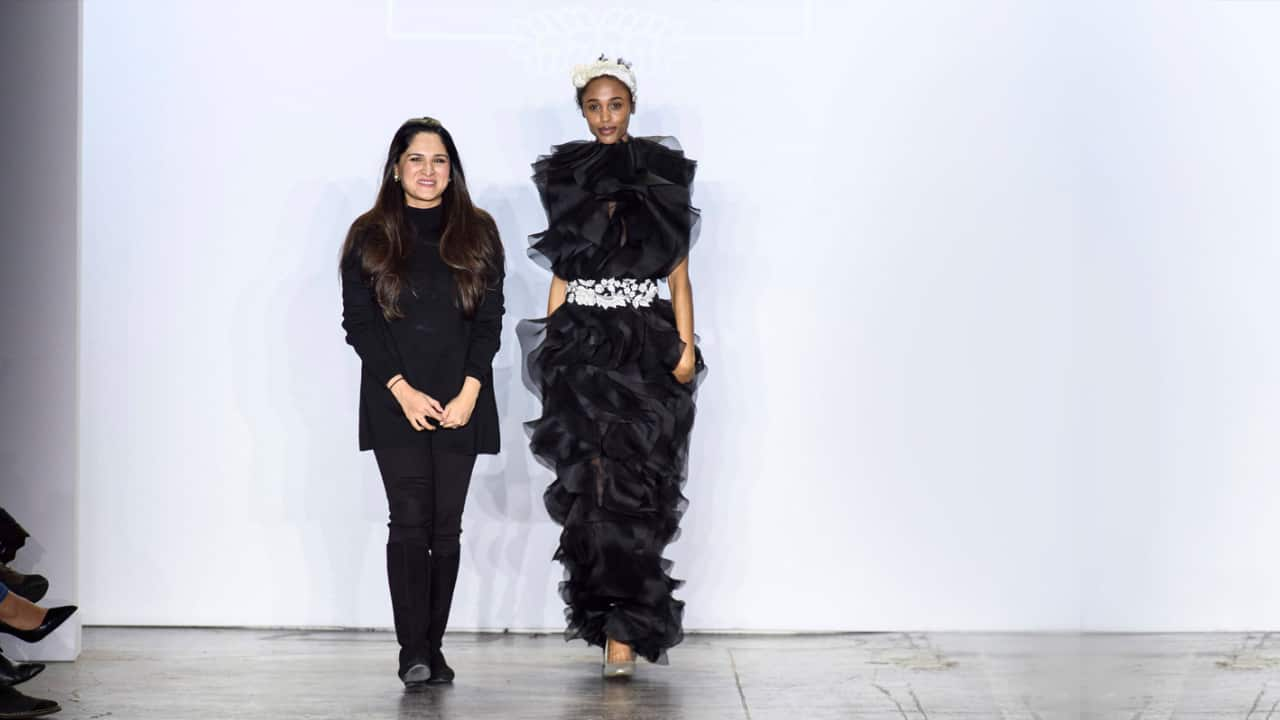 Sania Maskatiya with a model.
Sania Maskatiya with a model.
“Honestly, between my brother and I, I’ve got the better deal because I’m on the creative side and I get to have all the fun,” she laughs.
Acknowledging that Karachi has, for decades, been the definitive trendsetter for desi fashionistas when it comes to salwar-kameez silhouettes and for its breathable, luxuriant cotton and lawn fabrics, Sania graciously adds that the craftsmanship of saris from India is unmatched too.
“I get very excited when I come across something new from India; your jamavar shawls and your lehengas are so beautiful,” she gushes with youthful exuberance.
For Sania, leadership is about leading from the back. “My team is brilliant; they do all the work. They make the magic happen. I’m just there,” she says with good humour. But the brand’s professionalism and success only testify to her own creativity and nose for international trends and advancements in design.
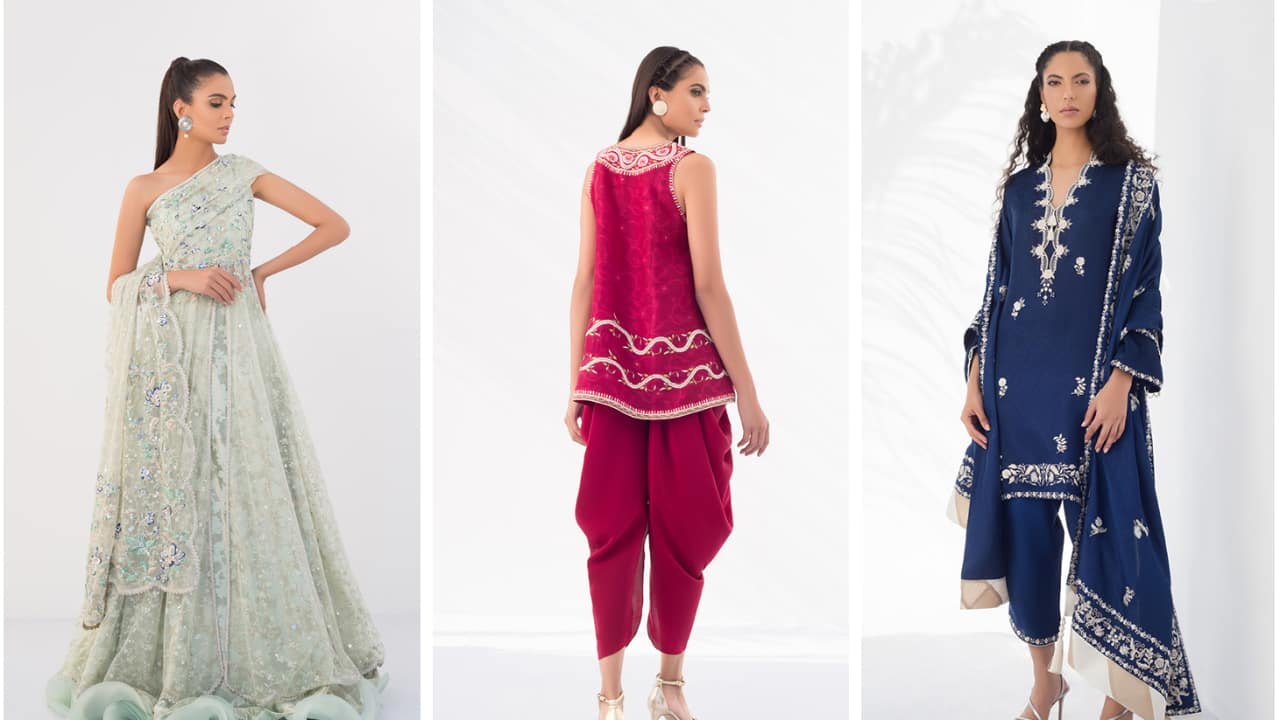 Models posing for Sania Maskatiya.
Models posing for Sania Maskatiya.
“You have to keep on top of your game,” she says. “While staying within the realm of modest-wear, you have to keep experimenting with structure, texture, silhouette… It has to be good quality, well-fitted. You can’t be repetitive. Everyone on the team goes mental, they go crazy. It’s very challenging but it’s always fun.”
Her first NYFW sojourn was a dream come true for Sania, considering that thousands of designers apply every season, and one needs an invite to showcase there besides a sponsor to tide over the expenses.
“I always wanted to show my Western-wear at all the major fashion weeks in the world. So I put it out there in the universe and I manifested it,” Sania states.
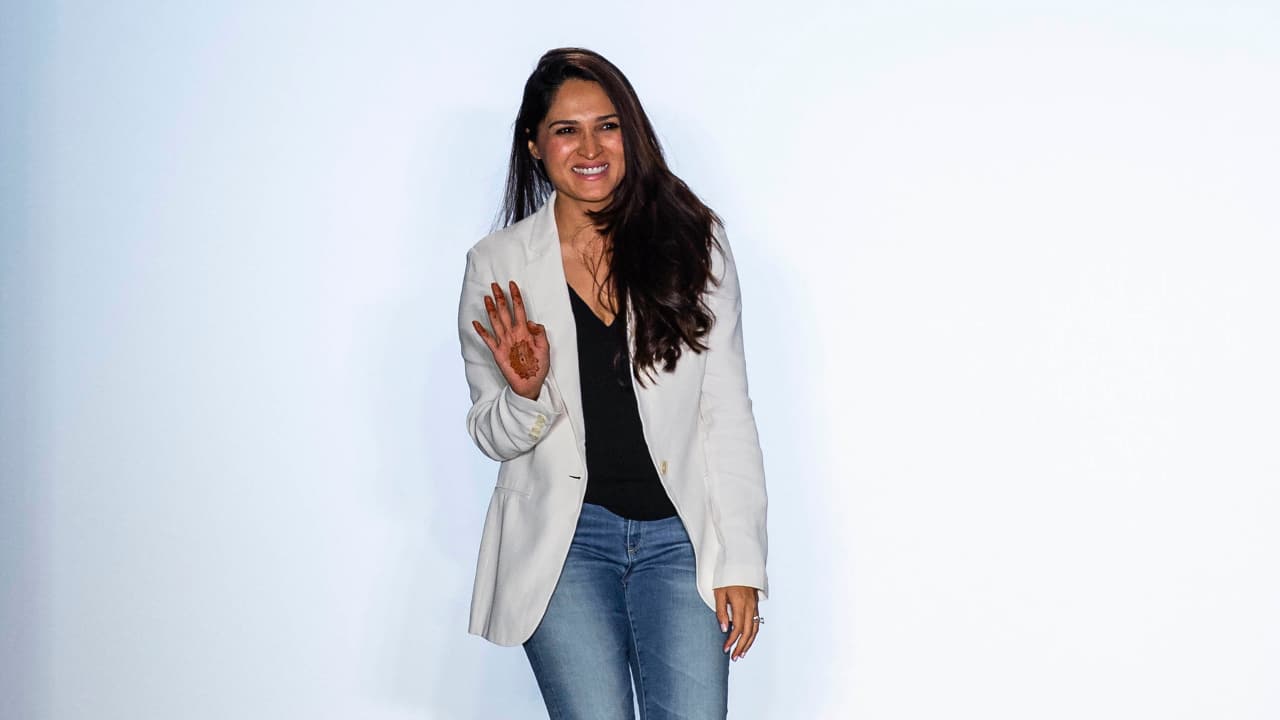 Sania Maskatiya posing for an image.
Sania Maskatiya posing for an image.
The experience was important not only in terms of going beyond her boundaries and exploring an international aesthetic – while still using handmade local weaves and embroideries from Pakistan – but also because of the sense of being part of a much larger landscape of exceptionally talented professionals.
“It was a priceless experience. I didn’t have to design something to sell; I was selling a dream. My team and I feel alive when we do such projects,” she shares, starry-eyed. Three shows down, she is still awestruck about the possibilities.
Sania is particular about developing her own prints and even fabrics like organza when the design demands it. The pandemic not only changed the way the company worked in 2020, but it also served as a trigger to introduce a new range.
“I had been contemplating an ‘Essentials’ line for ages. We had all our other lines – luxury, luxury-pret, occasion-wear, bridal. But this was something I’d wanted to do, and then the lockdown forced us to do this almost overnight,” she says, adding animatedly how the team worked over Zoom meetings and overcame hurdles of sampling and production.
Despite the initial obstacles, they now come up with seven new designs from the ‘Essentials’ collection every two weeks, in addition to their luxury and formal-wear collections.
It’s Sania’s next dream now to launch an accessible ethnic-wear label on a larger scale under her brand name. Something like Anita Dongre’s Global Desi line, I suggest. “Oh no, she’s, like, a goddess! She’s the queen,” Sania grins, shaking her head as if the comparison with the Indian fashion baroness is too shocking to even imagine.
But then she contemplates the idea and adds, “Yes, that’s exactly what I’d love to do. Who knows? Maybe someday.”
First published in eShe magazine.
Discover the latest Business News, Sensex, and Nifty updates. Obtain Personal Finance insights, tax queries, and expert opinions on Moneycontrol or download the Moneycontrol App to stay updated!
Find the best of Al News in one place, specially curated for you every weekend.
Stay on top of the latest tech trends and biggest startup news.